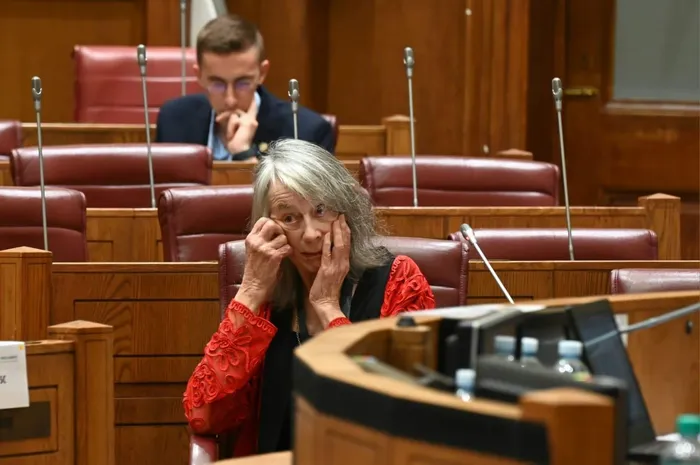De Haas questions Crime Intelligence head's qualifications in parliament's police infiltration inquiry

Police Infiltration Inquiry: Professor Mary de Haas Questions Crime Intelligence Head's Qualifications
Image: X
Parliament’s inquiry into alleged criminal infiltration within police operations took a revealing turn as Professor Mary De Haas raised serious doubts about the leadership and qualifications of Lieutenant General Dumisani Khumalo, head of Crime Intelligence and overseer of the Political Killings Task Team (PKTT).
The Ad Hoc Committee is investigating explosive claims made by KwaZulu-Natal Police Commissioner Lieutenant-General Nhlanhla Mkhwanazi, who revealed that a criminal syndicate known as the “big five” has allegedly infiltrated the police.
Mkhwanazi also noted that De Haas had been “very vocal” about dissolving the province’s PKTT.
During Tuesday’s hearing, De Haas questioned Khumalo’s suitability to lead such a critical unit, describing his policing and intelligence experience as “limited at best.”
“I do think, along the way, that the only training General Khumalo might have had was basic policing training,” she said.
De Haas cited reports from several sources indicating that Khumalo primarily served in operational response roles and lacked substantial intelligence or detective experience.
She recalled his involvement in guarding the KwaZulu monarch during the turbulent early 1990s, but noted that he lacked the specialised skills necessary to lead complex investigations.
“From what they tell me, his time in crime intelligence only lasted a few months before a financial scandal forced him out,” De Haas added.
When asked about internal perceptions, evidence leader Norman Arendse corroborated widespread dissatisfaction with Khumalo’s leadership.
De Haas described accusations of toxic management, revealing that “there was so much trouble internally that a special meeting was held, and it was decided to move him. Yet structurally, he was still overseeing operations.”
De Haas stressed the need for experienced detectives and investigators to lead a task team handling high-profile political killings.
“There was no transparency. You can’t evaluate because I don’t get a breakdown of who these people are or what their experience is. That’s why I have a problem with the task team,” she explained.
Her testimony aligns with growing criticism surrounding the PKTT’s leadership and operational effectiveness, fueling calls for the unit’s overhaul or outright disbandment.
Suspended Police Minister Senzo Mchunu, who spoke last month, recalled that numerous individuals - including De Haas - had sought confidential discussions on policing shortly after his appointment.
“De Haas is one of those people who wrote extensively to us to raise concerns about policing,” Mchunu said.
In November 2024, De Haas formally urged Mchunu to dissolve the PKTT, describing it as “irregularly formed” and advocating for its investigators to be reintegrated into traditional detective units.
On December 31, 2024, Mchunu disbanded the PKTT, citing wasteful expenditure and ineffectiveness. This move drew sharp criticism from Mkhwanazi, who alleged that the decision aimed to protect the alleged criminal syndicate.
De Haas’s testimony follows last week’s dramatic adjournment when MPs dismissed Cedrick Nkabinde, suspended Police Minister Mchunu’s Chief of Staff, over inconsistent statements and accusations of misleading Parliament.
The Committee has now given Nkabinde ten days to clarify and correct his testimony.
As the Committee continues to unravel these complex issues, all eyes remain on de Haas’s testimony for further clarity on the future of the PKTT and efforts to restore integrity within the KwaZulu-Natal police structures.
thabo.makwakwa@inl.co.za
IOL Politics
Get your news on the go. Download the latest IOL App for Android and IOS now.
Related Topics: